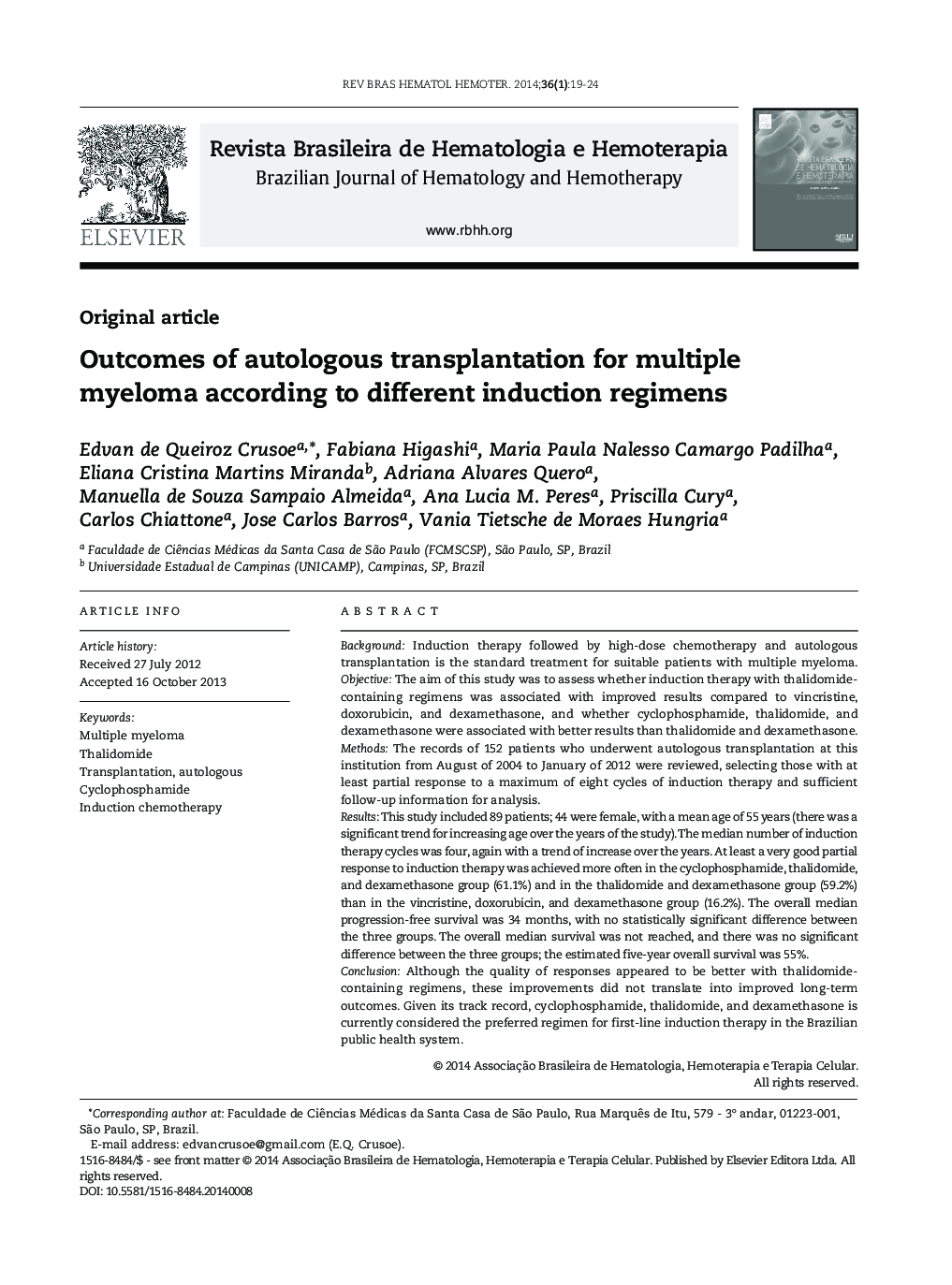| Article ID | Journal | Published Year | Pages | File Type |
|---|---|---|---|---|
| 3333103 | Revista Brasileira de Hematologia e Hemoterapia | 2014 | 6 Pages |
ABSTRACTBackgroundInduction therapy followed by high-dose chemotherapy and autologous transplantation is the standard treatment for suitable patients with multiple myeloma.ObjectiveThe aim of this study was to assess whether induction therapy with thalidomide-containing regimens was associated with improved results compared to vincristine, doxorubicin, and dexamethasone, and whether cyclophosphamide, thalidomide, and dexamethasone were associated with better results than thalidomide and dexamethasone.MethodsThe records of 152 patients who underwent autologous transplantation at this institution from August of 2004 to January of 2012 were reviewed, selecting those with at least partial response to a maximum of eight cycles of induction therapy and sufficient follow-up information for analysis.ResultsThis study included 89 patients; 44 were female, with a mean age of 55 years (there was a significant trend for increasing age over the years of the study). The median number of induction therapy cycles was four, again with a trend of increase over the years. At least a very good partial response to induction therapy was achieved more often in the cyclophosphamide, thalidomide, and dexamethasone group (61.1%) and in the thalidomide and dexamethasone group (59.2%) than in the vincristine, doxorubicin, and dexamethasone group (16.2%). The overall median progression-free survival was 34 months, with no statistically significant difference between the three groups. The overall median survival was not reached, and there was no significant difference between the three groups; the estimated five-year overall survival was 55%.ConclusionAlthough the quality of responses appeared to be better with thalidomide-containing regimens, these improvements did not translate into improved long-term outcomes. Given its track record, cyclophosphamide, thalidomide, and dexamethasone is currently considered the preferred regimen for first-line induction therapy in the Brazilian public health system.© 2014 Associação Brasileira de Hematologia, Hemoterapia e Terapia Celular. All rights reserved.
